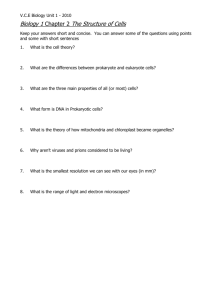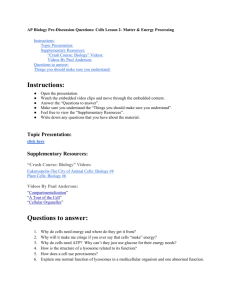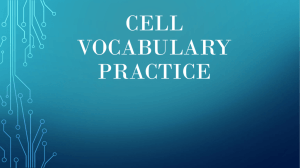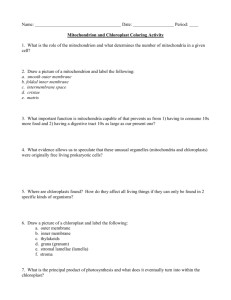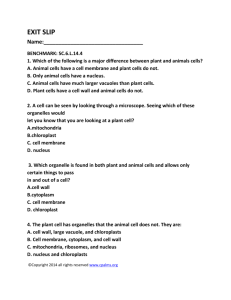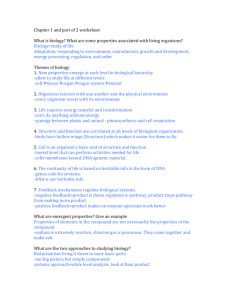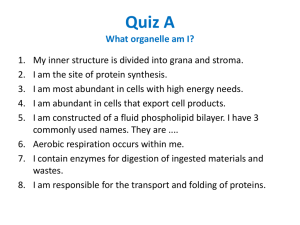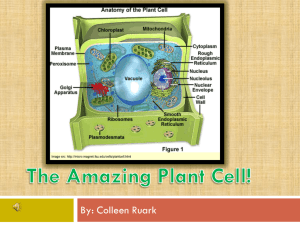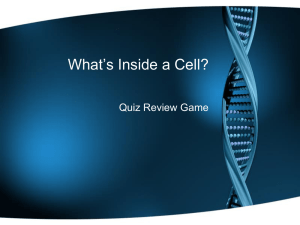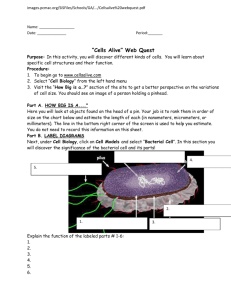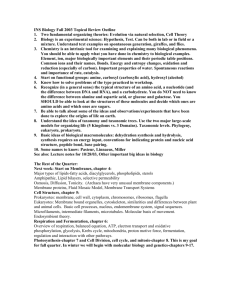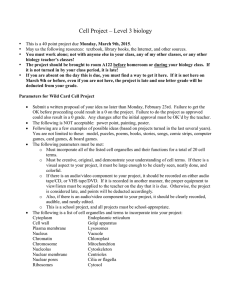AP Biology PDQ: Cells Lesson 2
advertisement
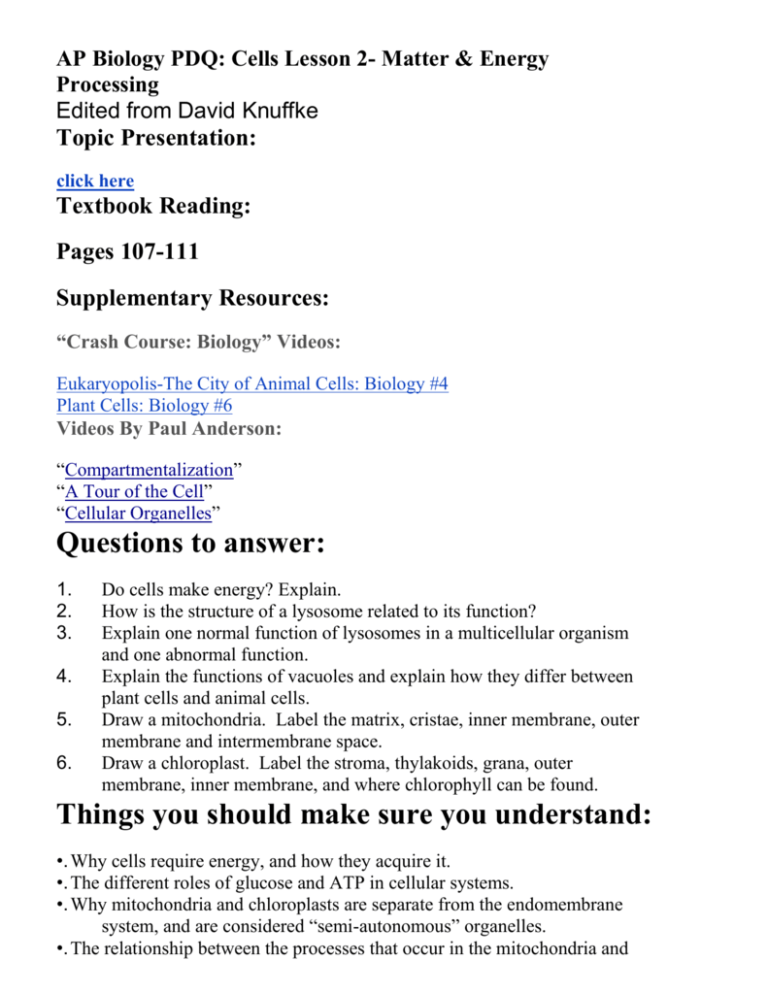
AP Biology PDQ: Cells Lesson 2- Matter & Energy Processing Edited from David Knuffke Topic Presentation: click here Textbook Reading: Pages 107-111 Supplementary Resources: “Crash Course: Biology” Videos: Eukaryopolis-The City of Animal Cells: Biology #4 Plant Cells: Biology #6 Videos By Paul Anderson: “Compartmentalization” “A Tour of the Cell” “Cellular Organelles” Questions to answer: 1. 2. 3. 4. 5. 6. Do cells make energy? Explain. How is the structure of a lysosome related to its function? Explain one normal function of lysosomes in a multicellular organism and one abnormal function. Explain the functions of vacuoles and explain how they differ between plant cells and animal cells. Draw a mitochondria. Label the matrix, cristae, inner membrane, outer membrane and intermembrane space. Draw a chloroplast. Label the stroma, thylakoids, grana, outer membrane, inner membrane, and where chlorophyll can be found. Things you should make sure you understand: •. Why cells require energy, and how they acquire it. •. The different roles of glucose and ATP in cellular systems. •. Why mitochondria and chloroplasts are separate from the endomembrane system, and are considered “semi-autonomous” organelles. •. The relationship between the processes that occur in the mitochondria and the processes that occur in the chloroplast.
